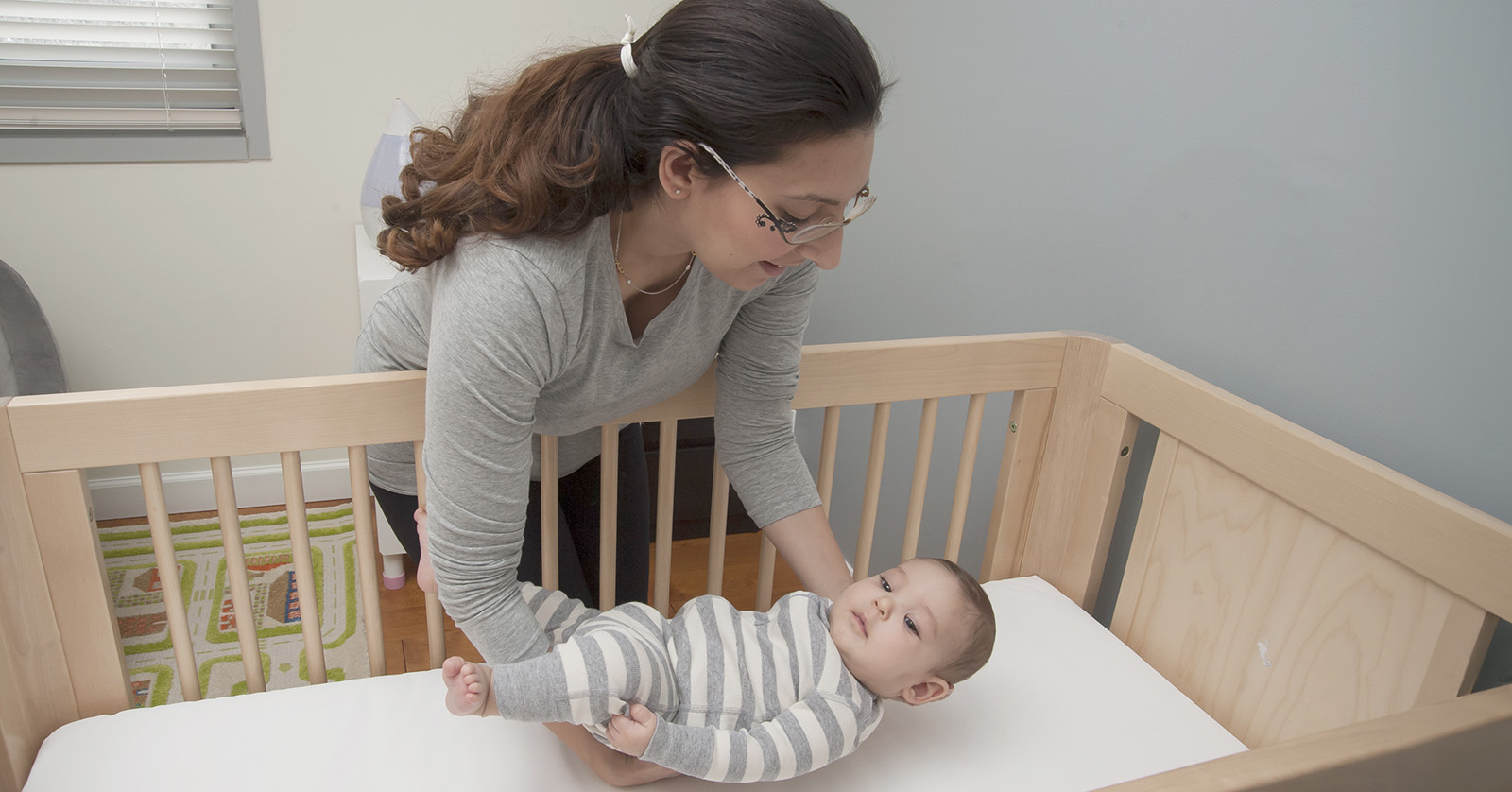
Promoting health during infancy—from following safe sleep recommendations to ensuring good nutrition—contributes to a child’s healthy growth and development. Much of the progress we’ve made in improving infant health and care in the United States is attributable to the implementation of NICHD’s research findings. We continue to work toward our mission of promoting healthy and optimal lives for all children and adolescents, including the tiniest babies.
Reducing Risk of Sudden Infant Death Syndrome (SIDS)
October marks SIDS Awareness Month. This month and beyond, infant care providers can join the Safe to Sleep® campaign to raise awareness about ways to reduce the risk of SIDS—the sudden, unexplained death of an infant less than 1 year old. The campaign provides a digital communications toolkit, including instructions for the educational #ClearTheCrib social media challenge. Last year, in response to the challenge, social media users created more than 100 videos of removing unsafe items from a cluttered crib.
Led by NICHD, along with collaborating organizations, Safe to Sleep® is a national effort to raise awareness of evidence-based strategies to lower the risk of SIDS and other sleep-related infant deaths. Years of NICHD-supported research have contributed to the body of scientific evidence that forms the basis of current safe infant sleep recommendations.
NICHD continues to investigate the causes of SIDS and to work toward optimizing prevention strategies. Last month, a research team funded in part by NICHD found that atypical metabolite levels at birth may increase SIDS risk. Other NICHD-funded research suggests that low levels of the neurotransmitter serotonin may combine with anomalies in serotonin receptors to increase SIDS risk. Another small study suggests that brain infections and neuroinflammation may explain some cases of SIDS. Identifying contributors to or predictors of SIDS promises to both inform risk-reduction efforts and help guide future research.
Many parents and caregivers find it challenging to follow best practices for safe infant sleep. Improving the understanding of these barriers and pinpointing factors that influence caregiver decision-making are essential for further encouraging safe infant sleep practices. A recent NICHD-funded study helped fill these knowledge gaps by interviewing mothers of infants born preterm, who are at higher risk for SIDS than babies born at or after 37 weeks of pregnancy.
Learning More About Necrotizing Enterocolitis (NEC)
Preterm infants also are susceptible to NEC, a life-threatening disease of the intestines that can appear suddenly and progress quickly. One infant in the United States dies almost every day from NEC. Survivors of severe NEC cases are at significantly higher risk of lifelong neurodevelopmental problems, compared to preterm infants who do not develop NEC.
There is much we do not understand about NEC, including the potential relationships between feeding practices and development of the disease. A report issued last month by an NICHD-convened expert panel provides 17 specific recommendations to improve the scientific evidence around NEC.
However, one thing is clear: the most promising way to prevent NEC is to prevent preterm birth. NICHD has a longstanding commitment to research to prevent preterm labor and birth and to prolong pregnancy in people at risk of delivering preterm, and we are continuing these efforts.
Gathering Robust Data on Infant and Child Health
To better understand health conditions that uniquely affect infants, we must collect health data from the youngest age groups. NIH’s All of Us Research Program seeks to advance health research by enrolling at least one million participants who reflect the diversity of the United States and its territories. All of Us recently began limited enrollment of children from birth through age 4 years.
The pediatric program has hit the ground running, and already, more than 100 children have joined with their parent or guardian at partner organizations across the country. NICHD is collaborating with All of Us to support and sustain these pediatric enrollment efforts. Gathering health data during the key periods of infancy and early childhood will be instrumental in helping researchers better understand the exposures and environmental influences that can affect health across generations. Our experiences during infancy and childhood affect our health across the lifespan.
 BACK TO TOP
BACK TO TOP